How do nations achieve digital transformation successfully? What works when adopting disruptive technologies such as artificial intelligence (AI) on a national level? National-level digital transformation is a major undertaking that has complex organizational, social, political, financial and technological implications. Recent experiences suggest that it does not always generate the intended results. In fact, over the past two decades, failures in digital transformation on national levels tend to be more common at a global scale. Given this reality, nations that managed to navigate their journey in the digital age with success can provide valuable lessons to peers within their context. The UAE is considered a model when it comes to the adoption of disruptive technologies. It is widely accepted that it arrived at this status through a combination of vision, strategic thinking and agile policymaking. While it is still at the beginning of a long journey, that has not been without its obstacles, its experience may have something to offer to governments in the region looking to begin integrating artificial intelligence (AI) into their government and sectoral activities or adopting it in the broader economy.[1]
Since the turn of the century, the UAE has embraced a forward-looking vision focused on building a competitive knowledge-based economy. At the heart of the UAE vision 2021 is a desire to embrace and harness the power of advanced technologies such as artificial intelligence. In support of this vision, the government established strategies and plans to embrace the fourth industrial revolution. As a result, today, the country ranks 6th globally in ICT adoption, according to the WEF Global Competitiveness 2019 report.[2] More specifically, it ranks first in the region and 19th worldwide on the Government AI Readiness Index.[3] Furthermore, Dubai ranked first globally in attracting foreign direct investment (FDI) for AI and robotics, according to estimates by the Annual Investment Meeting 2019 (AIM), an initiative by the UAE Ministry of Economy.[4] The city attracted US$21 billion worth of FDI in high-end technology transfers from 2015-2018, while the European Union (EU) and the USA attracted US$5.7bn and US$3.9bn respectively. The UAE was one of the first countries to announce a national AI strategy in October 2017 with a vision to become a world leader in AI by 2031.[5] The clear targets of this strategy are aimed at boosting government performance and efficiency at all levels. It includes eight objectives, which are: (1) establishing the UAE’s position as a global hub for AI, (2) increasing the competitiveness of the AI sector in the UAE, (3) establishing an incubator for AI-related innovation, (4) employing AI in the field of customer service to improve quality of life, (5) attracting and training talent for jobs of the future, (6) attracting leading research capabilities, (7) providing a data-driven infrastructure to support AI trials, and (8) optimizing AI governance and regulations. The strategy covers development and applications in nine sectors: Transport, health, space, education, renewable energy, environment, water, technology, and traffic.
AI-led digital transformation is expected to have an enormous impact on the society and the economy of the UAE. A study by PwC, a consultancy firm, shows that AI could contribute $96 billion to the UAE’s GDP in 2030 (around 13.6 % of GDP).[6] Accenture, another consultancy firm, also estimates that AI will increase the UAE’s economic growth rate by 1.6% by 2035.[7] Clearly, there is a great potential. However, what is the policy approach to reap the potential benefits of AI-driven digital transformation?
Agile Policymaking
We live in a world of rapid change that may be best characterized as a ‘VUCA world’: Volatile, Uncertain, Complex and Ambiguous. Effectively, it is a new world where old laws and rules no longer apply. The advanced technologies of the digital age are disrupting ‘business as usual’ and no industry is immune. Not to be left behind, governments have to predict the future by imagining what the world will be like and ‘adapt’ at the same pace, all while being flexible, especially in crafting and implementing responsive policies. One approach is for policymakers to adopt the ‘Agile’ project management methodology used in dynamic software and start-up worlds as way of experimenting, developing and crafting policy through an iterative trial and error approach.[8] The new realities demand continuous innovation in how policies are shaped to drive future governance, while establishing policy frameworks that utilize agile processes to develop policies better equipped to adapt, change and grow.[9] For example, one approach to this is regulatory sandboxes that are already being trialed by various governments, including the UAE, to allow experimental approaches to policy development, while limiting risk.
So how did the UAE chart its AI path? The combination of policy instruments and agile responses involved piloting, strategic re-alignment, organizational re-structuring among others.
AI Pilots in the UAE
Since the announcement of the AI strategy, government departments in the UAE have made noticeable efforts in the integration of AI, covering many use cases ranging from automated call-centers agents using chatbots and medical x-ray diagnoses using machine learning (ML) to a more complex autonomous taxi trials. For example, ‘Rashid’[10] is a call center virtual agent which offers official answers to customers’ questions about procedures, documents, and requirements needed to conduct various transactions in Dubai. The service was developed in the Dubai AI-Lab, an initiative led by the Dubai’s Department of Economic Development (DED) in cooperation with the Smart Dubai Office (SDO) and IBM, using Watson cognitive computing technology. This project is a good example of Dubai’s policy of encouraging collaboration between government departments and the private sector through forging public-private partnerships—one of the success factors for city-wide initiatives. This service started as a pilot initiative between three entities in 2017 but grew to become a city-wide initiative that involved other public and private sector entities wishing to push their information through ‘Rashid’. The algorithm behind ‘Rashid’ was trained to answer questions about living and working in Dubai including topics such as, starting a business, getting around the city, licensing, getting a visa or residency, attesting passports and certificates, shopping and more. The application is designed to learn and autonomously develop and improve its service. It can be accessed 24×7 by voice or text chat, in Arabic and English, from any electronic channel including ‘Dubai Now’, the single unified mobile application for accessing Dubai government services. ‘Rashid’ is convenient, saves customer time and effort, and is expected to reduce the number of working agents in call centers, thereby reducing cost and streamlining processes.
Another example is Dubai’s autonomous taxi, the first in the region. Dubai’s autonomous taxi was developed by the Road and Transport Authority (RTA) in partnership with Dubai Silicon Oasis (DSO), a technology free zone and testing lab for the latest disruptive technologies, and DGWorld for robots and artificial intelligence applications.[11] The autonomous taxi has been successfully tested and is ready to be introduced on Dubai roads. The RTA’s autonomous taxi brings Dubai one-step closer to achieving its autonomous transportation strategy goals that aims to have 25% of Dubai’s total journeys conducted through self-driving transit means by 2030.
Health is another important focus area for AI application. The UAE Ministry of Health and Prevention (MOHAP) has made use of AI to diagnose certain diseases such as tuberculosis using machine learning algorithms for chest x-ray examination.[12] A pilot program was launched by MOHAP in November 2018 to use AI technology to diagnose X-rays of patients suspected to have tuberculosis. The X-rays are placed in the diagnostic smart system, which specifies whether the patient has contracted the disease. The system helps and complements radiologists’ diagnoses and can be used to validate their findings. Additionally, it can be used as part of pre-screening procedures in remote areas where doctors and radiologists are not available. This system helps reduce government costs, which are allocated for medical and therapeutic facilities, as well as medical teams and diagnostic devices.[13]
These kinds of initiatives are not only about developing or adopting new technology, but also about accepting and adapting to inevitable change and developing necessary regulations that may not be intuitive or known a priori. This is a challenge that is facing many countries around the world, including the UAE.
Even though as we are still at the beginning of this technological revolution, these use cases show the potential impact of AI on the UAE’s society and economy. Advances in AI technology, including more enhanced machine learning and deep learning algorithms and the increasing amount of high-quality data, will certainly help increase adoption of AI. Equally important however, is the development of policies that will help accelerate adoption of AI.
Governing the UAE AI Strategy
In 2017, the UAE Government was the first in the world to appoint an AI Minister, indicating its commitment to the development of AI in the country. The AI Minister’s task is to oversee execution of the strategy and help resolve challenges that might arise during implementation. Furthermore, the UAE cabinet formed a national-level council for AI, called the "Emirates Council for Artificial Intelligence and Digital Transactions", as part of the governance structure that oversees the implementation of the AI strategy. The council is tasked with proposing policies that create an AI-friendly ecosystem, encourage advanced research in the sector and promote collaboration between the public and private sectors, including international institutions, in order to accelerate the adoption of AI. It is chaired by the AI minister and comprised of members of all stakeholder groups, at both federal and local government levels.
At the end of 2017, the AI Minister launched the national program for Artificial Intelligence[14], named BRAIN (Building a Responsive Artificial Intelligence Nation)—which is a compilation of resources that highlight the advances in AI and Robotics, with special emphasis on the UAE’s policy objective to become a leading participant in the responsible use of AI and its tools.
Overcoming the Capacity Challenge
Local skills and talent development in the area of AI is a key global challenge. The use and development of AI requires a talent pool with advanced skills in mathematics, analytics and data science. One of the eight objectives of the UAE AI strategy 2031 is to attract and train talents for jobs of the future and one of the themes underpinning the strategy is to develop the capabilities of senior government leaders and enhance skills of all staff operating in the field of technology. Early after the launch of the strategy, the AI council established a public-private partnership devoted to capacity building and involving academic and private sector actors. An example of one of the results of this partnership is the agreement between Smart Dubai Office and the Rochester Institute of Technology (RIT) in Dubai to establish a data science Master’s program, where RIT is to train staff in government entities and prepare them for data scientist roles in their organizations. Similarly, on the national level, through the national program for AI, the Minister of AI developed agreements with academic institutions and the private sector to train and upskill UAE nationals in the field of AI. Similarly, UAE-based universities and colleges have partnered with the national program for AI to provide specialized training courses for public and private sector staff to enhance their skills in this area. In April 2019, the Higher Colleges of Technology (HCT) launched an AI skills academy in partnership with public and private sector organizations to offer AI training courses to their staff. Additionally, the AI Summer/Spring camp is one strategic initiative launched by the national program of AI in partnership with many public and private sector entities and delivered by top international technology partners. The AI camp offers free short training courses of one to two weeks and, so far, has trained more than 15,000 people over the course of two years since it started in 2018. Highlighting success stories, the minister of AI said "In camp one, we saw many success stories like the 16-year-old student Athrav Naik who developed an AI-based system to detect skin cancer. We hope to create many more champions like Athrav."
In support of capacity building efforts and to strengthen the country’s R&D activities in AI, in October 2019, Abu Dhabi launched the world’s first AI university called Mohammed bin Zayed University of Artificial Intelligence.[15] Through its Master’s and PhD programs, this graduate-level AI research institution aims to support the advancement of scientific research, and the development, transfer, and use of AI. It will offer full scholarships, monthly stipends, health insurance and accommodation to all students.
Regulatory and Policy Instruments for AI Development
The adoption of AI in governance triggers numerous challenges. An important challenge facing the development and use of AI is how and to what degree such activities must be regulated. The UAE, for its part, has taken an agile approach to regulating the use of advanced technologies including applications of AI and autonomous self-driving cars. The government, in partnership with Dubai Future Foundation (DFF), launched the Regulation Laboratory (Reglab) in January 2019, pursuant to a federal law[16] issued in 2018 authorizing the UAE Cabinet to grant temporary licenses for the testing and vetting of innovations that utilize future technologies and their applications such as AI. The Reglab provides a safe testing environment for new technologies to help establish future regulations governing their use.[17]
One example of successful policy development is related to the use of AI in healthcare. The Abu Dhabi Department of Health (DOH) has developed a policy on the use of AI in the healthcare sector of Abu Dhabi.[18] The policy outlines the key roles and responsibilities of relevant stakeholders and provides guiding principles related to the use of AI in healthcare. The policy sets an example for local and regional health authorities to develop similar policies.
However, whether in healthcare or other fields of government services, the issue of ethics is one that is closely related to regulating AI but far more encompassing. Few cities and countries have developed ethical guidelines for the development and use of AI, while many others are still in the process of developing these guidelines. The UAE is leading in this effort by advocating for the responsible and ethical use of AI. At a global level, the government established the Global AI Governance Forum.[19] The forum consists of a think tank of 50 of the world’s foremost thinkers, leaders and practitioners of AI in the world and aims to promote good governance and ethical use of AI on a global-level. At a more practical level, in January 2019, the city of Dubai, through its smart city arm, Smart Dubai, was the first in the world to launch a city-government endorsed AI ethics self-assessment toolkit to help developers and government entities in Dubai assess ethical implications of their AI-driven tools and applications. Along with the toolkit, Smart Dubai put forward its official AI principles and ethics guidelines to individuals and organizations offering AI services in the city. The AI principles and guidelines ensure that AI systems are fair, transparent, accountable and explainable.[20]
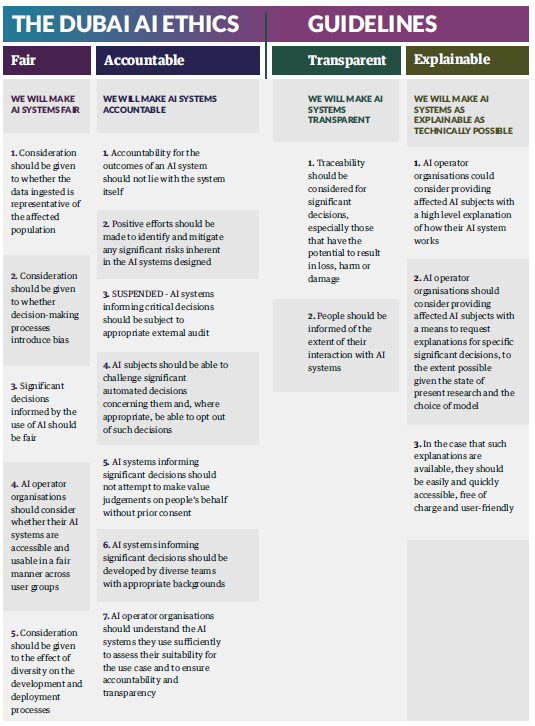
Policy Directions for the Arab Region – Lessons from the Case of the UAE
The UAE has made progress towards applying AI technologies in different areas in the public sector, in order to transform government services and achieve increased productivity and cost efficiency. This was possible because of leadership and agile approaches towards policy development that the country has developed and implemented. Given the relative similarities in the developmental, cultural and economic context among many countries in the region, the UAE’s approach to AI-related policy development offer key lessons to the region.
Primarily, a critical foundation emerging from the UAE experience is the importance of developing national AI and Science, Technology and Innovation (STI) strategies and roadmaps that include clear governance structures which identify roles and responsibilities of different government and non-government actors.
Once put in place, it will be important to adopt an agile approach to policy development to rapidly cut through existing barriers in established governance, regulatory and organizational systems. The instruments of these policies would include:
- Developing national-level workforce training and upskilling schemes, as well as talent attracting policies
- Foster collaborative partnership frameworks involving academia and the private sector and international partners.
- Develop AI governance and ethics policies that support the responsible use of AI and data across the public and private sectors.
- Create regulatory testing mechanisms to allow experimenting and testing of AI and other advanced technologies safely, as a first step to establishing future regulations.
- Employ accelerating mechanisms for scaling up AI innovations within government entities.[21]
Finally, the UAE’s experience highlights the importance of establishing cooperation platforms to share and exchange knowledge and experiences around the use of AI and other advanced technologies, cooperate on R&D related issues of common interest and tap into the wealth of expertise and resources available in the region. While there is no one-size-fits-all response to digital transformation, the UAE’s experiences in digital transformation provide a toolset, which policymakers in the region can combine, utilize and build in response to their priorities and context.
Saeed Aldhaheri is the Chairman of Smartworld, and board member of the Emirates Safer Internet Society. Read full bio here.
Endnotes:
[1] "AI Nation" is borrowed from the Author’s recent published book titled Digital Nation: How the UAE is building a future based on tech innovation, co-authored with Ranjit Rajan. The book analyzes the digital transformation journey of the UAE and how public and private sector organizations are leveraging disruptive technologies such as AI to accelerate innovation and achieve competitive advantage and economic growth. Challenges along this journey and how they were resolved were highlighted. Most importantly, the book gleans learnings from the digital journeys of these organizations and from their executives and offer advice and guidance to business readers in the region and abroad: "Digital Nation: how the United Arab Emirates is building a future based on tech innovation". Saeed Aldhaheri & Ranjit Rajan, Motivate Media Group, 2019
[2] WEF Global Competitiveness 2019 Report: http://www3.weforum.org/docs/WEF_TheGlobalCompetitivenessReport2019.pdf
[3] The 2019 Government AI Readiness Index – Oxford Insight: https://www.oxfordinsights.com/ai-readiness2019
[4] Dubai tops global ranks in attracting FDI for AI and robotics. http://wam.ae/en/details/1395302747280
[5] The UAE AI Strategy 2031. http://www.uaeai.ae/en/
[6] The Potential Impact of AI in the Middle East. PwC report 2018. https://www.pwc.com/m1/en/publications/documents/economic-potential-ai-middle-east.pdf
[7] Pivoting with AI: How Artificial Intelligence can drive diversification in the Middle East. Accenture report 2018. https://www.accenture.com/_acnmedia/pdf-77/accenture-impact-ai-gdp-middle-east.pdf
[8] The path to "agile" policymaking. Arjun Bison. Government Innovators network. https://www.innovations.harvard.edu/blog/path-agile-policymaking
[9] Can innovation save policy making for technology? https://www.thenational.ae/business/comment/can-innovation-save-policy-making-for-technology-1.934015
[10] Named as an honour to H.H. the late Sheikh Rashid bin Saeed Al Maktoum, the pioneer of Dubai’s renaissance: https://smartdubai.ae/apps-services/details/rashid
[11] Driverless Taxi on test run in Dubai. Gulf News. October 13 2018. https://gulfnews.com/uae/transport/gitex-driverless-taxi-on-test-run-in-dubai-1.2289375
[12] Artificial intelligence to be used in ‘urgent’ fight against tuberculosis, says UAE minister. The National. 23 October 2018. https://www.thenational.ae/uae/health/artificial-intelligence-to-be-used-in-urgent-fight-against-tuberculosis-says-uae-minister-1.783316
[13] Smart system to detect TB makes brisk progress. Gulf news. March 31 2019. https://gulfnews.com/uae/smart-system-to-detect-tb-makes-brisk-progress-1.63031234
[14] The national program for Artificial Intelligence. https://ai.gov.ae/
[15] Mohammed bin Zayed University of Artificial Intelligence: https://mbzuai.ac.ae
[16] The UAE to develop laws to govern self-driving cars and artificial intelligence. 11 November 2018. https://www.thenational.ae/uae/uae-to-develop-laws-to-govern-self-driving-cars-and-artificial-intelligence-1.790555
[17] Regulation Laboratory (Reglab): https://reglab.gov.ae
[18] Policy on the use of Artificial Intelligence in the healthcare sector of the emirates of Abu Dhabi. April 2018. https://www.haad.ae/HAAD/LinkClick.aspx?fileticket=C5W0f0QCVto%3D&tabid=1276
[19] Global AI Governance Forum. 10 April 2018. https://ai.gov.ae/uae-ai-initiatives/
[20] Smart Dubai’s AI ethics guidelines, principles and self-assessment tool: https://www.smartdubai.ae/initiatives/ai-principles-ethics
[21] Through a "government-as-a start-up" approach, Dubai has developed and implemented its 10X program which identifies start-ups that offer potential solutions to work with government entities to address and solve their problems and challenges.




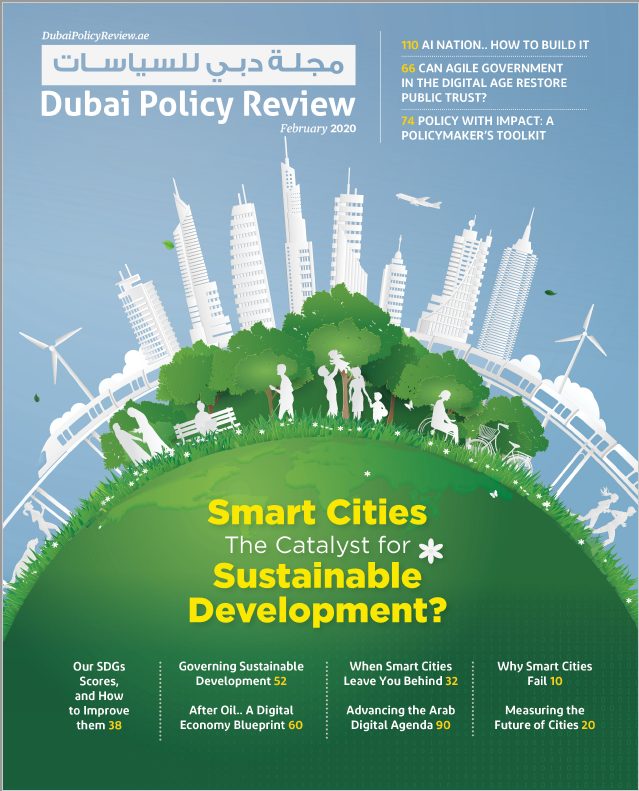
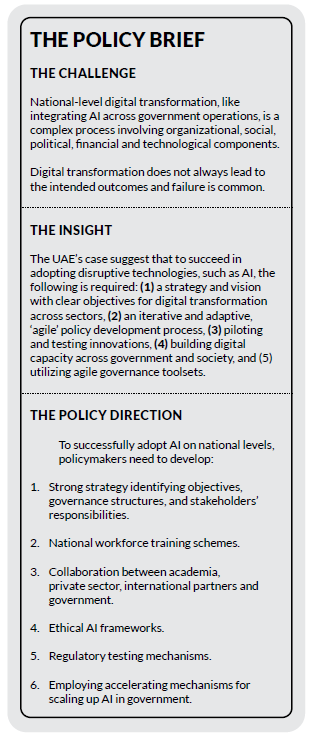
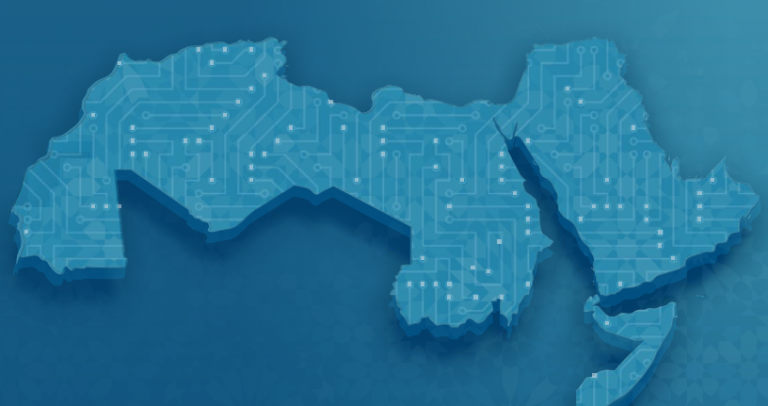







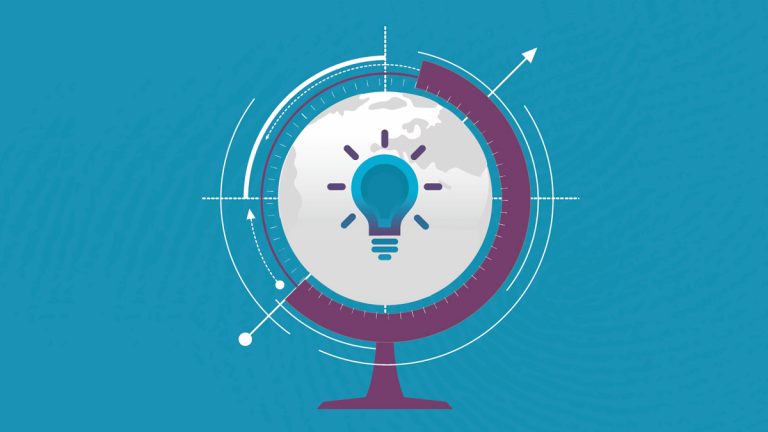

You must be logged in to post a comment.